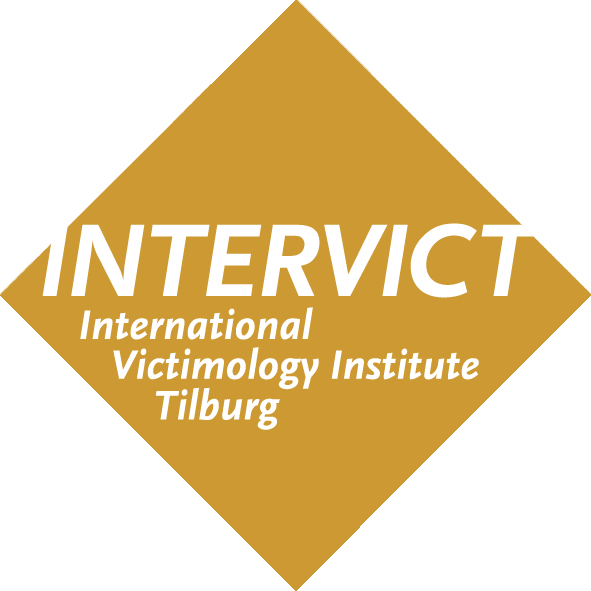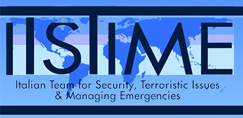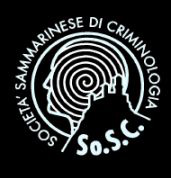INTERNATIONAL ADVISORY BOARD
David S. Wall (UK)
 Prof. David S. Wall
is a Professor of Criminal Justice and Information Society at
the School of Law, University of Leeds, UK. Earlier he was a
Professor of Criminology in the School of Applied Social
Sciences, Durham University, UK. He was the Director
of the Centre for Criminal Justice Studies (2000-5) and Head of
the School of Law (2005-7). He conducts research, write, teach
and supervise PhD students in the fields of: Cybercrime,
Criminal justice and Information technology, Policing,
Intellectual property crime. He has published a wide range of
articles and books on these subjects which include: Cybercrime:
The Transformation of Crime in the Information Age (Polity,
2007), Cyberspace Crime (ed. Ashgate/ Dartmouth, 2003), Crime
and the Internet (ed. Routledge, 2001) and he co‐edited The
Internet, Law and Society (with Y. Akdeniz and C. Walker,
Longman, 2000). He is a world renowned scholar on cybercrime
issues.
Prof. David S. Wall
is a Professor of Criminal Justice and Information Society at
the School of Law, University of Leeds, UK. Earlier he was a
Professor of Criminology in the School of Applied Social
Sciences, Durham University, UK. He was the Director
of the Centre for Criminal Justice Studies (2000-5) and Head of
the School of Law (2005-7). He conducts research, write, teach
and supervise PhD students in the fields of: Cybercrime,
Criminal justice and Information technology, Policing,
Intellectual property crime. He has published a wide range of
articles and books on these subjects which include: Cybercrime:
The Transformation of Crime in the Information Age (Polity,
2007), Cyberspace Crime (ed. Ashgate/ Dartmouth, 2003), Crime
and the Internet (ed. Routledge, 2001) and he co‐edited The
Internet, Law and Society (with Y. Akdeniz and C. Walker,
Longman, 2000). He is a world renowned scholar on cybercrime
issues.
Ihekwoaba D. Onwudiwe (USA)
Dr. Ihekwoaba D. Onwudiwe received his Ph.D. in criminology and
criminal justice from the School of Criminology at Florida State
University in 1993. Currently, he is a Professor, member of the
graduate faculty, and Interim Director of the graduate programs
in the Administration of Justice Department, Barbara
Jordan-Mickey Leland School of Public Affairs at Texas Southern
University. A noted scholar, he has published many articles on
international policing, terrorism, transnational crimes
(Advanced Fee Fraud), and African criminology. His book, “The
Globalization of Terrorism” published by Ashgate, has received
worldwide attention. He and Dominique Wisler also co-edited
“International Patterns of Community Policing,” published in
2009 by CRC Press, a division of Taylor and Francis.Dr. Onwudiwe
is currently the Editor-In-Chief of the International Police
Executive Symposium (IPES) Working Paper Series. He serves as a
reviewer to many academic outlets and several referred journals
in the discipline of criminology and criminal justice. A member
of various Editorial boards, his expertise, consulting
interests, and experience range from counter-terrorism,
intelligence and security, human trafficking, community
policing, police intervention, police and security, ethics and
professionalism, environmental crime control theory, hostage
negotiations, democratic policing to communal violence, and
conflict management and training.
Graeme R. Newman (USA)
 Prof. Graeme R. Newman is distinguished teaching professor at
the School of Criminal Justice, University at Albany and
Associate Director of the Center for Problem-Oriented Policing.
He has advised the United Nations on crime and justice issues
over many years, and in 1990 established the United Nations
Crime and Justice Information Network. He has published works in
the fields of the history and philosophy of punishment,
international criminal justice, private security, situational
crime prevention, problem-oriented policing and information
technology. Among the recent books he has written or edited are:
Super Highway Robbery (Willan, 2003, with Ronald V. Clarke), The
Global Report on Crime and Justice (United Nations/Oxford,
1998), Crime and Immigration edited with Joshua Freilich (Ashgate,
2006), Designing our Crime from Products and Systems edited with
Ronald V. Clarke (Willan 2006), and Outsmarting the Terrorists
edited with Ronald V. Clarke (Praeger 2006).
Prof. Graeme R. Newman is distinguished teaching professor at
the School of Criminal Justice, University at Albany and
Associate Director of the Center for Problem-Oriented Policing.
He has advised the United Nations on crime and justice issues
over many years, and in 1990 established the United Nations
Crime and Justice Information Network. He has published works in
the fields of the history and philosophy of punishment,
international criminal justice, private security, situational
crime prevention, problem-oriented policing and information
technology. Among the recent books he has written or edited are:
Super Highway Robbery (Willan, 2003, with Ronald V. Clarke), The
Global Report on Crime and Justice (United Nations/Oxford,
1998), Crime and Immigration edited with Joshua Freilich (Ashgate,
2006), Designing our Crime from Products and Systems edited with
Ronald V. Clarke (Willan 2006), and Outsmarting the Terrorists
edited with Ronald V. Clarke (Praeger 2006).
Gorazd Meško (Slovenia)
 Gorazd Meško, PhD, is Full Professor of Criminology and Dean at
the Faculty of Criminal Justice and Security, University of
Maribor, Slovenia as well as the editor-in-chief of the Journal
of Criminal Justice and Security.
He has been a visiting scholar at the Institute of Criminology,
University of Cambridge (1995, 2001) and Centre for Criminology,
University of Oxford (1996, 1999). He was a visiting professor
at SCJ, GVSU, Michigan in 2000. He has also been a visiting
professor at the University of Sarajevo, Bosnia and Herzegovina
(2002-2008) and at the University of Belgrade (2009 -). His
recent bibliography includes books: Corruption in Central and
Eastern Europe at the Turn of the Millennium (ed., 2000),
Dilemmas of Contemporary Criminal Justice (co-ed., 2004),
Policing in Emerging Democracies – Critical Reflections (co-ed.,
2007), Crime, Media and Fear of Crime (co-ed., 2009) and Crime
Control Policy and Prevention – Slovenian Perspectives (co-ed.).
He has also been a guest editor of the Policing – An
International Journal of Police Strategies and Management (a
special issue on policing in SE Europe, 2009/3). In addition, he
has been a head of a European Society of Criminology WG on
criminology curricula since 2005 and a correspondent of the
International Centre for the Prevention of Crime (a 2009 report
on crime prevention in SE Europe). His present research includes
studies comparative criminology and victimology, fear of crime
in former Yugoslav republics (Slovenia, Croatia, Bosnia &
Herzegovina, Serbia and FYR of Macedonia), history of
criminology and crimes against environment.
Gorazd Meško, PhD, is Full Professor of Criminology and Dean at
the Faculty of Criminal Justice and Security, University of
Maribor, Slovenia as well as the editor-in-chief of the Journal
of Criminal Justice and Security.
He has been a visiting scholar at the Institute of Criminology,
University of Cambridge (1995, 2001) and Centre for Criminology,
University of Oxford (1996, 1999). He was a visiting professor
at SCJ, GVSU, Michigan in 2000. He has also been a visiting
professor at the University of Sarajevo, Bosnia and Herzegovina
(2002-2008) and at the University of Belgrade (2009 -). His
recent bibliography includes books: Corruption in Central and
Eastern Europe at the Turn of the Millennium (ed., 2000),
Dilemmas of Contemporary Criminal Justice (co-ed., 2004),
Policing in Emerging Democracies – Critical Reflections (co-ed.,
2007), Crime, Media and Fear of Crime (co-ed., 2009) and Crime
Control Policy and Prevention – Slovenian Perspectives (co-ed.).
He has also been a guest editor of the Policing – An
International Journal of Police Strategies and Management (a
special issue on policing in SE Europe, 2009/3). In addition, he
has been a head of a European Society of Criminology WG on
criminology curricula since 2005 and a correspondent of the
International Centre for the Prevention of Crime (a 2009 report
on crime prevention in SE Europe). His present research includes
studies comparative criminology and victimology, fear of crime
in former Yugoslav republics (Slovenia, Croatia, Bosnia &
Herzegovina, Serbia and FYR of Macedonia), history of
criminology and crimes against environment.
Jody Miller (USA)
 Jody Miller is presently a Professor in the School of Criminal
Justice, Rutgers University, USA.
Jody Miller received her Ph.D. in sociology from the University
of Southern California in 1996. She specializes in feminist
theory and qualitative research methods. Her research focuses on
gender, crime and victimization, in the context of urban
communities, offender and drug networks, the commercial sex
industry, and youth gangs. She is the author of Getting Played:
African American Girls, Urban Inequality, and Gendered Violence
(New York University Press, 2008)—a finalist for the 2008 C.
Wright Mills Award—and One of the Guys: Girls Gangs and Gender
(Oxford University Press, 2001), as well as numerous articles
and book chapters, including in Criminology, British Journal of
Criminology, and Gender & Society. She is currently completing a
monograph based on a three year field study of the commercial
sex industry in Sri Lanka. Professor Miller is also Coordinator
of the UM-St. Louis Sri Lankan Educational Fund. Based in Sri
Lanka, the project provides educational infrastructure
development and programming on a tea estate in the central
hills.
Jody Miller is presently a Professor in the School of Criminal
Justice, Rutgers University, USA.
Jody Miller received her Ph.D. in sociology from the University
of Southern California in 1996. She specializes in feminist
theory and qualitative research methods. Her research focuses on
gender, crime and victimization, in the context of urban
communities, offender and drug networks, the commercial sex
industry, and youth gangs. She is the author of Getting Played:
African American Girls, Urban Inequality, and Gendered Violence
(New York University Press, 2008)—a finalist for the 2008 C.
Wright Mills Award—and One of the Guys: Girls Gangs and Gender
(Oxford University Press, 2001), as well as numerous articles
and book chapters, including in Criminology, British Journal of
Criminology, and Gender & Society. She is currently completing a
monograph based on a three year field study of the commercial
sex industry in Sri Lanka. Professor Miller is also Coordinator
of the UM-St. Louis Sri Lankan Educational Fund. Based in Sri
Lanka, the project provides educational infrastructure
development and programming on a tea estate in the central
hills.
Natti Ronel (Israel)
 Prof. Natti Ronel
teaches at the Department of
Criminology, Bar Ilan University, Ramat Gan, Israel. He
previously served as the Researcher-in-Chief of the
interdisciplinary Center for Children and Youth Studies in Tel
Aviv University. He is also a licensed clinical criminologist
who holds private practice with criminal population, youth and
adults who exhibit addiction, violence and/or victimization.
Natti leads continuous training courses for Criminal Justice and
Victim Assistance professionals and he is a recurring faculty
member of the annual postgraduate course of “Victimology, victim
assistance, and criminal justice” in the Inter University
Centre, Dubrovnik, where he lectures on therapy for recovering
victims. His various writings reflect both his clinical and
academic experience in criminology. He has a special focus on
the spiritual aspect of criminology and victimology - its values
and impact upon individuals and communities: spiritual based
intervention and recovery, moral transformation, forgiveness and
spiritual intelligence. Natti is the proponent of a new
criminological theory “The Criminal Spin”. He is a member of the
World Society of Victimology, the Israeli Society of Criminology
(board member) and the Israeli Council for Criminology. He has
co-edited a book, Trends and Issues in Victimology. Natti is
married happily with two grown children and live in Jaffa – the
Jewish–Arabic part of Tel Aviv, Israel.
Prof. Natti Ronel
teaches at the Department of
Criminology, Bar Ilan University, Ramat Gan, Israel. He
previously served as the Researcher-in-Chief of the
interdisciplinary Center for Children and Youth Studies in Tel
Aviv University. He is also a licensed clinical criminologist
who holds private practice with criminal population, youth and
adults who exhibit addiction, violence and/or victimization.
Natti leads continuous training courses for Criminal Justice and
Victim Assistance professionals and he is a recurring faculty
member of the annual postgraduate course of “Victimology, victim
assistance, and criminal justice” in the Inter University
Centre, Dubrovnik, where he lectures on therapy for recovering
victims. His various writings reflect both his clinical and
academic experience in criminology. He has a special focus on
the spiritual aspect of criminology and victimology - its values
and impact upon individuals and communities: spiritual based
intervention and recovery, moral transformation, forgiveness and
spiritual intelligence. Natti is the proponent of a new
criminological theory “The Criminal Spin”. He is a member of the
World Society of Victimology, the Israeli Society of Criminology
(board member) and the Israeli Council for Criminology. He has
co-edited a book, Trends and Issues in Victimology. Natti is
married happily with two grown children and live in Jaffa – the
Jewish–Arabic part of Tel Aviv, Israel.
Sudipto Roy (USA/India)
 Dr. Sudipto Roy is a Professor at the Department of Criminology
and Criminal Justice, Indiana State University. Dr. Roy has
published his research on the impact of Victim Restitution
Programs (both public and private), Day Reporting Center, and
Electronically Monitored Home Detention Programs on adult as
well as juvenile offenders in Criminology and Social
Integration, Federal Probation, Journal of Contemporary Criminal
Justice, Journal of Crime and Justice, Journal of Offender
Monitoring, The Justice Professional, and in several books.
Currently, he is a member of the Editorial Advisory Board as
well as a reviewer for the Criminology and Social Integration
(published by the University of Zagreb, Croatia). Additionally,
he reviews manuscripts for several journals, e.g. Justice
Quarterly, The Justice Professional. Furthermore, he has
presented a number of papers in international, national, and
regional professional meetings. In 1992 and 1994, he was invited
as a resource faculty at the Eighth and the Tenth Annual Post
Graduate Seminar on "Victims and the Criminal Justice System"
held at the Vrije Universiteit, Amsterdam, The Netherlands.
Also, as a doctoral student he participated in the same seminar
held at the Inter-University Centre of Post-graduate Studies,
Dubrovnik, Croatia, in 1987. He has conducted varied evaluation
research projects on community correctional programs in
Michigan, Delaware, New York, and Indiana. His areas of
specialization are corrections, juvenile justice, victimology,
criminology, program evaluation, statistics, and race and ethnic
relations.
Dr. Sudipto Roy is a Professor at the Department of Criminology
and Criminal Justice, Indiana State University. Dr. Roy has
published his research on the impact of Victim Restitution
Programs (both public and private), Day Reporting Center, and
Electronically Monitored Home Detention Programs on adult as
well as juvenile offenders in Criminology and Social
Integration, Federal Probation, Journal of Contemporary Criminal
Justice, Journal of Crime and Justice, Journal of Offender
Monitoring, The Justice Professional, and in several books.
Currently, he is a member of the Editorial Advisory Board as
well as a reviewer for the Criminology and Social Integration
(published by the University of Zagreb, Croatia). Additionally,
he reviews manuscripts for several journals, e.g. Justice
Quarterly, The Justice Professional. Furthermore, he has
presented a number of papers in international, national, and
regional professional meetings. In 1992 and 1994, he was invited
as a resource faculty at the Eighth and the Tenth Annual Post
Graduate Seminar on "Victims and the Criminal Justice System"
held at the Vrije Universiteit, Amsterdam, The Netherlands.
Also, as a doctoral student he participated in the same seminar
held at the Inter-University Centre of Post-graduate Studies,
Dubrovnik, Croatia, in 1987. He has conducted varied evaluation
research projects on community correctional programs in
Michigan, Delaware, New York, and Indiana. His areas of
specialization are corrections, juvenile justice, victimology,
criminology, program evaluation, statistics, and race and ethnic
relations.
Keith D. Harries (USA)
 Prof. Keith Harries is presently a Professor Emeritus in Geography at the
University of Maryland Baltimore County, since 1985 he was a
Professor and was
department chair during 1985-95. He was formerly professor of
geography at Oklahoma State University. He is the author of a
dozen books, most on criminal justice topics, including
Geography of Crime and Justice (New York: McGraw-Hill, 1974),
Crime and the Environment (Springfield: Charles C. Thomas,
1980), Serious Violence (Springfield: Charles C. Thomas, 2nd
ed., 1997), Geography of Execution: The Capital Punishment
Quagmire in America (Lanham: Rowman & Littlefield, 1997), and
Mapping Crime: Principle & Practice (Washington D.C.: U.S.
Department of Justice, 1999). Author of numerous articles, most
recently: Police officers’ perceptions of maps and aerial
photographs, International Journal of Police Science and
Management, 6:37-50 (2003), Violence change and cohort
trajectories: Baltimore neighborhoods, 1990-2000, Urban
Geography, 24:14-30 (2004). His recent research has focused on
analysis of neighborhoods where very high and very low crime
densities are found adjacent to each other in order to determine
the relevant environmental determinants of these conditions. He
is in the editorial board of the Journal of Quantitative
Criminology. He has served as external examiner for Ph.D.
students at University of Madras and elsewhere. Prof. Keith
Harries holds degrees of B.Sc. (Econ), London School of
Economics, M.A. & Ph.D., University of California, Los Angeles.
Prof. Keith Harries is presently a Professor Emeritus in Geography at the
University of Maryland Baltimore County, since 1985 he was a
Professor and was
department chair during 1985-95. He was formerly professor of
geography at Oklahoma State University. He is the author of a
dozen books, most on criminal justice topics, including
Geography of Crime and Justice (New York: McGraw-Hill, 1974),
Crime and the Environment (Springfield: Charles C. Thomas,
1980), Serious Violence (Springfield: Charles C. Thomas, 2nd
ed., 1997), Geography of Execution: The Capital Punishment
Quagmire in America (Lanham: Rowman & Littlefield, 1997), and
Mapping Crime: Principle & Practice (Washington D.C.: U.S.
Department of Justice, 1999). Author of numerous articles, most
recently: Police officers’ perceptions of maps and aerial
photographs, International Journal of Police Science and
Management, 6:37-50 (2003), Violence change and cohort
trajectories: Baltimore neighborhoods, 1990-2000, Urban
Geography, 24:14-30 (2004). His recent research has focused on
analysis of neighborhoods where very high and very low crime
densities are found adjacent to each other in order to determine
the relevant environmental determinants of these conditions. He
is in the editorial board of the Journal of Quantitative
Criminology. He has served as external examiner for Ph.D.
students at University of Madras and elsewhere. Prof. Keith
Harries holds degrees of B.Sc. (Econ), London School of
Economics, M.A. & Ph.D., University of California, Los Angeles.
Joanna Shapland (UK)
 Joanna Shapland is Professor of Criminal Justice, Head of
School of Law and Director of
the Centre for Criminological Research at the University of
Sheffield, She is Executive Editor of the International Review
of Victimology. She is currently evaluating the use of
restorative justice with adult offenders in England and Wales,
and undertaking a longitudinal study of desistance from
offending.
Joanna Shapland is Professor of Criminal Justice, Head of
School of Law and Director of
the Centre for Criminological Research at the University of
Sheffield, She is Executive Editor of the International Review
of Victimology. She is currently evaluating the use of
restorative justice with adult offenders in England and Wales,
and undertaking a longitudinal study of desistance from
offending.
Marc Groenhuijsen (The Netherlands)
 Professor Marc Groenhuijsen is professor of criminal law, criminal
procedure and victimology at Tilburg University in the
Netherlands. In 2005, he became the founding director of
INTERVICT, the International Victimology Institute Tilburg. He
has published widely on various victims’ issues. He is
the President of the World Society of Victimology, member of
the Board of Directors of the International Organization for
Victim Assistance, and member of the Board of Directors of the
International Society for Criminology. He also serves as a
part-time judge in the Court of Appeal in Arnhem. Dr.
Groenhuijsen is a member of the Royal Netherlands Academy of
Arts and Sciences. Internationally, he belongs to the top
researchers in the intersection of Administration of Criminal
Law and Victimology. He has published over 250 articles and has
authored or edited 24 books. The four volume work on the Dutch
Criminal Procedure, can be considered as a standard reference
work in this area for several decades to come. What makes Dr
Groenhuijsen’s work quite unique in The Netherlands is the fact
that he seems to be one of the first to open windows to various
neighbouring fields, like sociology and psychology (criminology,
victimology) and economics (white collar crime, like money
laundering and insider trading and asset forfeiture). Dr.
Groenhuijsen received several prestigious prizes/awards
including the Dr. Hendrik Muller Prize for Behavioural and
Social Sciences, awarded by the Royal Netherlands Academy of
Arts and Sciences.
Professor Marc Groenhuijsen is professor of criminal law, criminal
procedure and victimology at Tilburg University in the
Netherlands. In 2005, he became the founding director of
INTERVICT, the International Victimology Institute Tilburg. He
has published widely on various victims’ issues. He is
the President of the World Society of Victimology, member of
the Board of Directors of the International Organization for
Victim Assistance, and member of the Board of Directors of the
International Society for Criminology. He also serves as a
part-time judge in the Court of Appeal in Arnhem. Dr.
Groenhuijsen is a member of the Royal Netherlands Academy of
Arts and Sciences. Internationally, he belongs to the top
researchers in the intersection of Administration of Criminal
Law and Victimology. He has published over 250 articles and has
authored or edited 24 books. The four volume work on the Dutch
Criminal Procedure, can be considered as a standard reference
work in this area for several decades to come. What makes Dr
Groenhuijsen’s work quite unique in The Netherlands is the fact
that he seems to be one of the first to open windows to various
neighbouring fields, like sociology and psychology (criminology,
victimology) and economics (white collar crime, like money
laundering and insider trading and asset forfeiture). Dr.
Groenhuijsen received several prestigious prizes/awards
including the Dr. Hendrik Muller Prize for Behavioural and
Social Sciences, awarded by the Royal Netherlands Academy of
Arts and Sciences.
Michael Bachmann (USA/Germany)
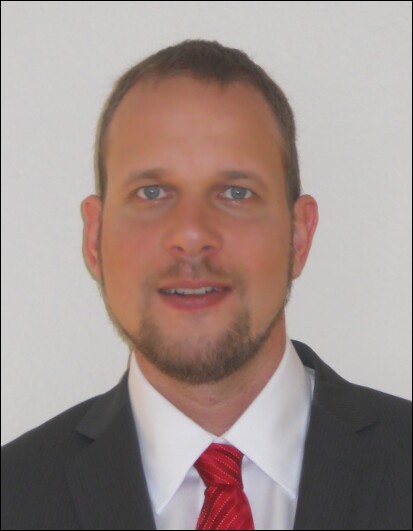 Dr.
Michael Bachmann is an Associate Professor of Criminal Justice
at Texas Christian University, USA. He received his Ph.D. in
Sociology from the University of Central Florida in 2008 and his
M.S. in Social Sciences from University of Mannheim, Germany in
2004. Dr. Bachmann specializes in the investigation of computer
and high tech crimes ranging from Internet piracy to cyber fraud
and computer-focused crimes such as hacking and malicious code
releases. His research focuses primarily on the social
dimensions behind technology-driven crimes. He is the author of
several book chapters and journal articles on diverse topics
ranging from various types of cyber crimes to property crimes
and interpersonal crimes such as human trafficking. Dr. Bachmann
also specializes in geospatial crime analysis and crime mapping
applications and strategies. He is a member of the TCU ArcGIS
User Group and serves as the college GIS specialist. As an
expert witness for lawsuits in Texas, Dr. Bachmann provides
testimony on crime foreseeability analyses.
Dr.
Michael Bachmann is an Associate Professor of Criminal Justice
at Texas Christian University, USA. He received his Ph.D. in
Sociology from the University of Central Florida in 2008 and his
M.S. in Social Sciences from University of Mannheim, Germany in
2004. Dr. Bachmann specializes in the investigation of computer
and high tech crimes ranging from Internet piracy to cyber fraud
and computer-focused crimes such as hacking and malicious code
releases. His research focuses primarily on the social
dimensions behind technology-driven crimes. He is the author of
several book chapters and journal articles on diverse topics
ranging from various types of cyber crimes to property crimes
and interpersonal crimes such as human trafficking. Dr. Bachmann
also specializes in geospatial crime analysis and crime mapping
applications and strategies. He is a member of the TCU ArcGIS
User Group and serves as the college GIS specialist. As an
expert witness for lawsuits in Texas, Dr. Bachmann provides
testimony on crime foreseeability analyses.
Stanley Yeldell (USA)
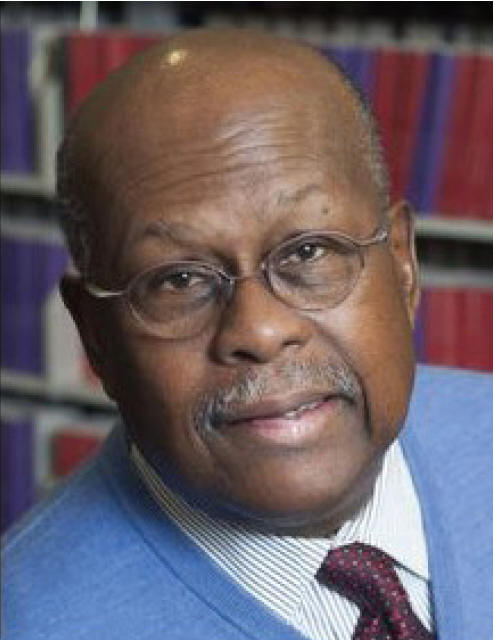 Dr. Stanley B. Yeldell, Associate Professor (retd), has been a member of the Law/Justice
Department, Rowan University for thirty one years. Dr. Yeldell,
received his J.D. from the Howard University School of Law in
the City of Washington D.C. His experience are in Law/Justice
Studies with specific emphasis in the field of Victimology and a
diverse background in the following areas: Criminal Law,
Business Law, Consumer Law, Forensic Law and Torts. He is the
Program Coordinator for the Criminal Justice Internship Program,
the Department Academic Advisor, the founder of the Victim
Awareness Organization. He is a Subject Specialist for the
American Council on Education, Distance Education Center, and
the Thomas Edison College-Corporate Higher Education. Moreover,
he was appointed by The Chief Justice of the New Jersey Supreme
Court to be the Chairman of the Gloucester County Advisory
Probation Board (1991-2001), and he also serves on the Glassboro
Awareness Advisory Scholarship Board (1993-present) and the
Thomas Edison College-Corporate Higher Education Advisory Board
(2000-present).
Dr. Stanley B. Yeldell, Associate Professor (retd), has been a member of the Law/Justice
Department, Rowan University for thirty one years. Dr. Yeldell,
received his J.D. from the Howard University School of Law in
the City of Washington D.C. His experience are in Law/Justice
Studies with specific emphasis in the field of Victimology and a
diverse background in the following areas: Criminal Law,
Business Law, Consumer Law, Forensic Law and Torts. He is the
Program Coordinator for the Criminal Justice Internship Program,
the Department Academic Advisor, the founder of the Victim
Awareness Organization. He is a Subject Specialist for the
American Council on Education, Distance Education Center, and
the Thomas Edison College-Corporate Higher Education. Moreover,
he was appointed by The Chief Justice of the New Jersey Supreme
Court to be the Chairman of the Gloucester County Advisory
Probation Board (1991-2001), and he also serves on the Glassboro
Awareness Advisory Scholarship Board (1993-present) and the
Thomas Edison College-Corporate Higher Education Advisory Board
(2000-present).
Vesna Nikolic-Ristanovic (Serbia)
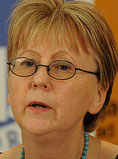 Prof. Vesna Nikolić-Ristanović
is the Director of Victimology Society of Serbia (VDS) and
professor of criminology, victimology and juvenile crime at
Faculty for special education and rehabilitation in Belgrade.
She initiated, coordinated and participated in large number of
domestic and international researches on crime victims,
particularly women as victims, domestic violence, sexual
violence, women’s crime, trafficking in human beings and truth
and reconciliation. She is an author, co-author and editor of
large number of books and papers published in Serbia and abroad,
among which the most important are: From victim to prisoner:
domestic violence and women’s crime, Domestic violence in Serbia
(editor), Social Change, Gender and Violence: Post-Communist and
War-Affected Societies, A life on one’s own: rehabilitation of
victims of trafficking for the purpose of sexual exploitation
(co-author) and International standards on domestic violence and
their implementation in the Western Balkans (co-author with
Mirjana Dokmanovic) and Surviving transition: everyday life and
violence against women in postcommunist and postconflict
society. She is also the Editor-in- Chief of Temida, the
journal on victimization, human rights and gender, and
corresponding editor of Feminist Review. She has been consultant
and supervisor of several projects on gender-based violence and
truth and reconciliation. The member of the Council for gender
equality of Serbian Government and counseler of Serbian
ombudsman for gender equality and rights of disabled.
Prof. Vesna Nikolić-Ristanović
is the Director of Victimology Society of Serbia (VDS) and
professor of criminology, victimology and juvenile crime at
Faculty for special education and rehabilitation in Belgrade.
She initiated, coordinated and participated in large number of
domestic and international researches on crime victims,
particularly women as victims, domestic violence, sexual
violence, women’s crime, trafficking in human beings and truth
and reconciliation. She is an author, co-author and editor of
large number of books and papers published in Serbia and abroad,
among which the most important are: From victim to prisoner:
domestic violence and women’s crime, Domestic violence in Serbia
(editor), Social Change, Gender and Violence: Post-Communist and
War-Affected Societies, A life on one’s own: rehabilitation of
victims of trafficking for the purpose of sexual exploitation
(co-author) and International standards on domestic violence and
their implementation in the Western Balkans (co-author with
Mirjana Dokmanovic) and Surviving transition: everyday life and
violence against women in postcommunist and postconflict
society. She is also the Editor-in- Chief of Temida, the
journal on victimization, human rights and gender, and
corresponding editor of Feminist Review. She has been consultant
and supervisor of several projects on gender-based violence and
truth and reconciliation. The member of the Council for gender
equality of Serbian Government and counseler of Serbian
ombudsman for gender equality and rights of disabled.
Dominique Wisler (Congo)
 Dominique Wisler is a United Nations senior consultant
specialized in the internal security sector reform in transition
states. He is currently a Senior Advisor on Policing, UNDP-BPCR,
at Kinhasa, Congo. He holds a bachelor degree in philosophy
(University of Fribourg), a master degree in international
relations (Graduate Institute for International Relations,
Geneva), and a PhD from the University of Geneva where he taught
political sciences until 2002. He has been engaged in police
reforms in Switzerland, Bosnia and Herzegovina, Mozambique,
Sudan, Haiti, Democratic Republic of Congo, and Iraq. His most
recent publications are a comparative book on community
policing, edited with his colleague Ihekwoaba Onwudiwe from the
University of Southern Texas (Community Policing. International
Patterns and Comparative Perspectives, CRC Press, London, 2009),
a comparative book on protest policing in Switzerland, written
with his colleague Marco Tackenberg (Protest and Police, Haupt
Verlag, Bern, 2007), and a book on the republican adventure in
Switzerland (Geneva Democracy, Georg, Genève, 2008).
Dominique Wisler is a United Nations senior consultant
specialized in the internal security sector reform in transition
states. He is currently a Senior Advisor on Policing, UNDP-BPCR,
at Kinhasa, Congo. He holds a bachelor degree in philosophy
(University of Fribourg), a master degree in international
relations (Graduate Institute for International Relations,
Geneva), and a PhD from the University of Geneva where he taught
political sciences until 2002. He has been engaged in police
reforms in Switzerland, Bosnia and Herzegovina, Mozambique,
Sudan, Haiti, Democratic Republic of Congo, and Iraq. His most
recent publications are a comparative book on community
policing, edited with his colleague Ihekwoaba Onwudiwe from the
University of Southern Texas (Community Policing. International
Patterns and Comparative Perspectives, CRC Press, London, 2009),
a comparative book on protest policing in Switzerland, written
with his colleague Marco Tackenberg (Protest and Police, Haupt
Verlag, Bern, 2007), and a book on the republican adventure in
Switzerland (Geneva Democracy, Georg, Genève, 2008).
Eric Chui (Hong Kong)
 Eric Chui is
a Professor in the Department of Social
Work and Social Administration at the University of Hong Kong,
and Adjunct Senior Lecturer in the School of Social Science at
the University of Queensland, Australia. His main research and
teaching interests revolve around criminal justice, criminology,
youth justice, and social work practice with offenders. He is
the co-editor of Moving Probation Forward: Evidence, Arguments
and Practice (Pearson Education 2003), Experiences of
Transnational Chinese Migrants in the Asia-Pacific (Nova Science
Publishers, 2006), Social Work and Human Services Best Practice
(Federation Press, 2006), Research Methods for Law (Edinburgh
University Press, 2007) and Understanding Criminal Justice in
Hong Kong (Willan, 2008). He is the Associate Editor of the
International Journal of Offender Therapy and Comparative
Criminology (Sage) and the Managing Editor and Book Review
Editor of Asian Journal of Criminology (Springer).
Eric Chui is
a Professor in the Department of Social
Work and Social Administration at the University of Hong Kong,
and Adjunct Senior Lecturer in the School of Social Science at
the University of Queensland, Australia. His main research and
teaching interests revolve around criminal justice, criminology,
youth justice, and social work practice with offenders. He is
the co-editor of Moving Probation Forward: Evidence, Arguments
and Practice (Pearson Education 2003), Experiences of
Transnational Chinese Migrants in the Asia-Pacific (Nova Science
Publishers, 2006), Social Work and Human Services Best Practice
(Federation Press, 2006), Research Methods for Law (Edinburgh
University Press, 2007) and Understanding Criminal Justice in
Hong Kong (Willan, 2008). He is the Associate Editor of the
International Journal of Offender Therapy and Comparative
Criminology (Sage) and the Managing Editor and Book Review
Editor of Asian Journal of Criminology (Springer).
Srisombat Chokprajakchat (Thailand)
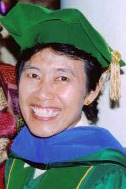 Srisombat
Chokprajakchat is currently an associate professor and program
director in the Doctoral Program in Criminology, Justice
Administration and Society at Faculty of Social Sciences and
Humanities, Mahidol University, Thailand. She is also serving as
a visiting lecturer of Faculty of Political Science at
Ramkhamhaeng University. She is currently assigned by the
National Anti-Corruption Commission Thailand, as a member of the
National Strategic Steering Committee (Private sector) on
Anti-corruption. Srisombat Chokprajakchat has authored book on
anti-corruption policy in Thailand (Thai version) and is the
co-author of book on victimology (Thai version). She serves as a
member of Editorial Board of international journal of Crime,
punishment and the law: An international journal (USA).
Srisombat Chokprajakchat is the principal investigator of
several researches. Her research interests include criminal
justice policy, law enforcement agencies, anti-corruption,
victim and witness protection program, drug policy and human
rights. She is currently the principal investigator on a grant
funded by the Department of Rights Protection and Liberties,
Ministry of Justice in Thailand. Srisombat Chokprajakchat
graduated with First Class Honors in Political Science from
Kasetsart University in 1981. In 1984 she took a Master of
Criminology and Criminal Justice degree from Mahidol University.
She received her Ph.D. degree in Public Policy from George Mason
University, USA in 2004.
Srisombat
Chokprajakchat is currently an associate professor and program
director in the Doctoral Program in Criminology, Justice
Administration and Society at Faculty of Social Sciences and
Humanities, Mahidol University, Thailand. She is also serving as
a visiting lecturer of Faculty of Political Science at
Ramkhamhaeng University. She is currently assigned by the
National Anti-Corruption Commission Thailand, as a member of the
National Strategic Steering Committee (Private sector) on
Anti-corruption. Srisombat Chokprajakchat has authored book on
anti-corruption policy in Thailand (Thai version) and is the
co-author of book on victimology (Thai version). She serves as a
member of Editorial Board of international journal of Crime,
punishment and the law: An international journal (USA).
Srisombat Chokprajakchat is the principal investigator of
several researches. Her research interests include criminal
justice policy, law enforcement agencies, anti-corruption,
victim and witness protection program, drug policy and human
rights. She is currently the principal investigator on a grant
funded by the Department of Rights Protection and Liberties,
Ministry of Justice in Thailand. Srisombat Chokprajakchat
graduated with First Class Honors in Political Science from
Kasetsart University in 1981. In 1984 she took a Master of
Criminology and Criminal Justice degree from Mahidol University.
She received her Ph.D. degree in Public Policy from George Mason
University, USA in 2004.
Emilio C. Viano (USA)
 Prof. Emilio C. Viano is
an Emeritus Professor of Criminology and
Victimology at The American University in Washington DC. He has
earned doctorates in Europe and the United States and a LLM in
the U.K. He has written or edited more than 30 books and
published over 120 articles in refereed and other journals. He
has been honored with academic prizes and honors by various
Universities and other institutions throughout the world. He is
often invited to offer his expert opinion, speak at
international conferences and meetings, and provide training to
victim assistance and criminal justice personnel. Prof. Viano is
often interviewed by the media, printed and electronic, for his
expert opinion on strategic issues, terrorism, international
politics and other current topics. He often appears on CNN, BBC,
Voice of America and many other international television
programs. Prof. Viano is member of many editorial boards and,
among others, of the Board of Directors of the International
Society of Criminology.
Prof. Emilio C. Viano is
an Emeritus Professor of Criminology and
Victimology at The American University in Washington DC. He has
earned doctorates in Europe and the United States and a LLM in
the U.K. He has written or edited more than 30 books and
published over 120 articles in refereed and other journals. He
has been honored with academic prizes and honors by various
Universities and other institutions throughout the world. He is
often invited to offer his expert opinion, speak at
international conferences and meetings, and provide training to
victim assistance and criminal justice personnel. Prof. Viano is
often interviewed by the media, printed and electronic, for his
expert opinion on strategic issues, terrorism, international
politics and other current topics. He often appears on CNN, BBC,
Voice of America and many other international television
programs. Prof. Viano is member of many editorial boards and,
among others, of the Board of Directors of the International
Society of Criminology.
Kam C. Wong (USA)
 Dr. Kam C. Wong is the Chair/Associate Professor, Department of
Criminal Justice, Xavier University, Ohio. His areas of
expertise are: Comparative policing: PRC vs. U.S.A. China
policing, Hong Kong policing People’s Republic of China criminal
law and criminal process, Homeland Security – USA PATRIOT Act.
Professor Wong was formerly an Inspector of Police with the Hong
Kong Police and was awarded the Commissioner's High
Commendation. He was a one-time black belt karate instructor for
over 20 years. He has practiced and taught law in the U.S. and
Hong Kong. Professor Wong was the former Director of Chinese
Laws Program at Chinese University of Hong Kong. He served as
the vice-president (1999 to 2000) and vice-chair (2000 to 2002)
to Hong Kong Society of Criminology. He is currently an
Associate Fellow of Center of Criminology, Hong Kong University.
He is an organizer and founding member of Asian Association of
Police Studies, of which he was the vice-President (2001-2) and
President (2002-3). Professor Wong was an editor with the
Journal of Crime and Delinquency and Managing Editor for Police
Practice and Research: An International Journal. He was the
Editor-in-Chief, Occasional Paper Series, Chinese Law Program.
He is currently on the Editorial Board of International Journal
of Comparative Criminology and Asian Policing.
Dr. Kam C. Wong is the Chair/Associate Professor, Department of
Criminal Justice, Xavier University, Ohio. His areas of
expertise are: Comparative policing: PRC vs. U.S.A. China
policing, Hong Kong policing People’s Republic of China criminal
law and criminal process, Homeland Security – USA PATRIOT Act.
Professor Wong was formerly an Inspector of Police with the Hong
Kong Police and was awarded the Commissioner's High
Commendation. He was a one-time black belt karate instructor for
over 20 years. He has practiced and taught law in the U.S. and
Hong Kong. Professor Wong was the former Director of Chinese
Laws Program at Chinese University of Hong Kong. He served as
the vice-president (1999 to 2000) and vice-chair (2000 to 2002)
to Hong Kong Society of Criminology. He is currently an
Associate Fellow of Center of Criminology, Hong Kong University.
He is an organizer and founding member of Asian Association of
Police Studies, of which he was the vice-President (2001-2) and
President (2002-3). Professor Wong was an editor with the
Journal of Crime and Delinquency and Managing Editor for Police
Practice and Research: An International Journal. He was the
Editor-in-Chief, Occasional Paper Series, Chinese Law Program.
He is currently on the Editorial Board of International Journal
of Comparative Criminology and Asian Policing.
Sneh Lata Tandon (India)
 Professor
Sneh Lata Tandon, is a former Professor of Social work at the
University of Delhi. She was a Visiting Professor at the Department of Social Welfare, School of Social
Sciences, Seoul National University, Gwanak-gu, Seoul 151-150,
South Korea. She did
her Ph.D. in Social Work in 1987 from Jamia Millia Islamia, a
Central University at Delhi, India. She graduated in economics
from the University of Delhi in 1966 and did M.A. Social Work (MSW)
from the University of Delhi in 1968. In 1981, she did a
Certificate Course in Juvenile Care Service from the
International Training Institute, Middle Head, Sydney,
Australia. Dr. Tandon possess more than 40 years of teaching,
research and other professional experience in the fields of
Criminology, Correctional Administration, Social Welfare
Administration, and other Social Welfare areas. She has served
in various academic institutions of India. She has three books
to her credit, viz. Senior Citizens: Perspective for the New
Millennium (2001), Reliance Publishing House, New Delhi;
Probation: A New Perspective (1990), Reliance Publishing House,
New Delhi; Issues in Criminal Justice Administration, Resource
Material Series (1987) Editors: Chattoraj, B. N. and Tandon, Sneh
Lata, ICFS, New Delhi (Mimeographed).
Professor
Sneh Lata Tandon, is a former Professor of Social work at the
University of Delhi. She was a Visiting Professor at the Department of Social Welfare, School of Social
Sciences, Seoul National University, Gwanak-gu, Seoul 151-150,
South Korea. She did
her Ph.D. in Social Work in 1987 from Jamia Millia Islamia, a
Central University at Delhi, India. She graduated in economics
from the University of Delhi in 1966 and did M.A. Social Work (MSW)
from the University of Delhi in 1968. In 1981, she did a
Certificate Course in Juvenile Care Service from the
International Training Institute, Middle Head, Sydney,
Australia. Dr. Tandon possess more than 40 years of teaching,
research and other professional experience in the fields of
Criminology, Correctional Administration, Social Welfare
Administration, and other Social Welfare areas. She has served
in various academic institutions of India. She has three books
to her credit, viz. Senior Citizens: Perspective for the New
Millennium (2001), Reliance Publishing House, New Delhi;
Probation: A New Perspective (1990), Reliance Publishing House,
New Delhi; Issues in Criminal Justice Administration, Resource
Material Series (1987) Editors: Chattoraj, B. N. and Tandon, Sneh
Lata, ICFS, New Delhi (Mimeographed).
Uri Yanay (Israel)
 Professor
Uri Yanay teaches at the Paul Baerwald School of Social Work and
Social Welfare at the Hebrew
University of Jerusalem, Israel. His cross-national research
evaluates social policy guidelines
and public services designed for victims of crime and terrorism.
Part of this research deals with the impact of selected
mediation and restorative justice program aimed at reducing
community tensions and solving local conflicts.
Professor
Uri Yanay teaches at the Paul Baerwald School of Social Work and
Social Welfare at the Hebrew
University of Jerusalem, Israel. His cross-national research
evaluates social policy guidelines
and public services designed for victims of crime and terrorism.
Part of this research deals with the impact of selected
mediation and restorative justice program aimed at reducing
community tensions and solving local conflicts.
Muzammil Querishi (UK)
Muzammil
Quraishi PhD is a Professor of Criminology & Criminal Justice in
the School of Health & Society, University of Salford, UK. He
was co-investigator on a large-scale project entitled
Understanding Conversion to Islam in Prison (UCIP) 2017-2021
(with Prof. Matthew Wilkinson, Cardiff University) and is
currently co-investigator on a major follow-on project examining
Prison based Intervention for Muslim Offenders (PRIMO). He is
author of numerous texts examining Muslim populations as both
victims and offenders (Muslims & Crime, Ashgate/Routledge
2005/2016) on racial and religious discrimination (Researching
Racism, Sage, 2015) and his latest monograph explores
comparative criminology (Towards a Malaysian Criminology,
Palgrave, 2020). He is also co-author of a forthcoming text on
Islam in Prison (Bristol, Policy Press 2022). He has provided
consultancy about Muslim prisoners to a range of UK governmental
bodies including the Ministry of Justice, Greater Manchester
Police, Her Majesty’s Prison and Probation Service and Her
Majesty’s Inspectorate of Prisons.

